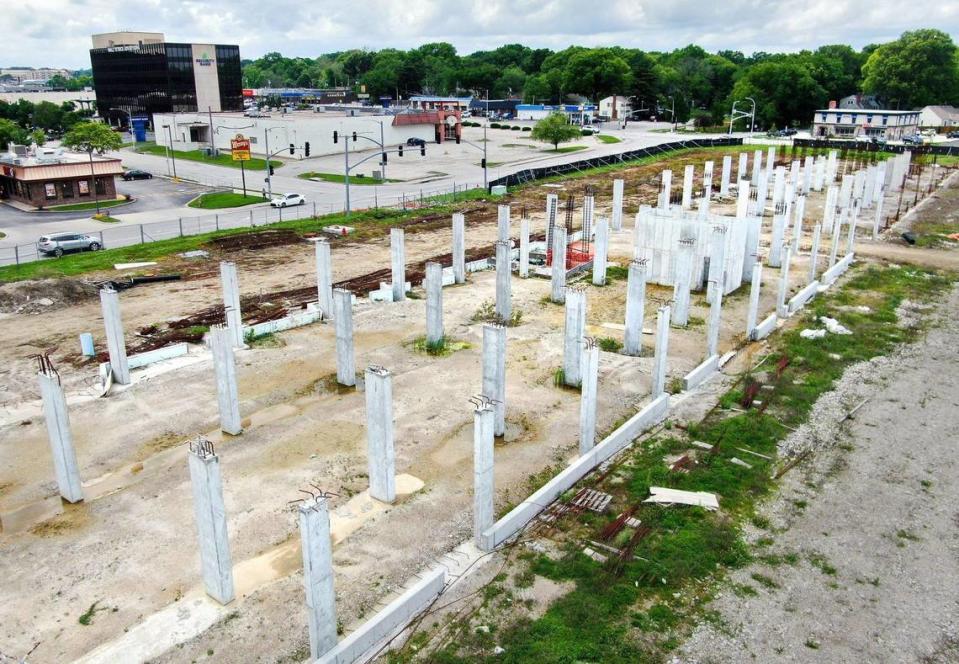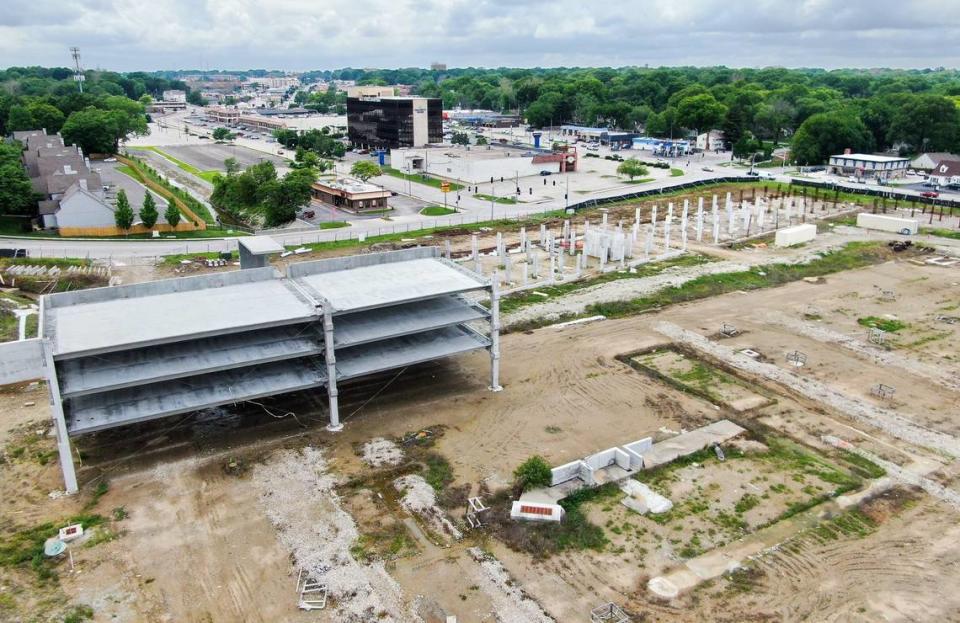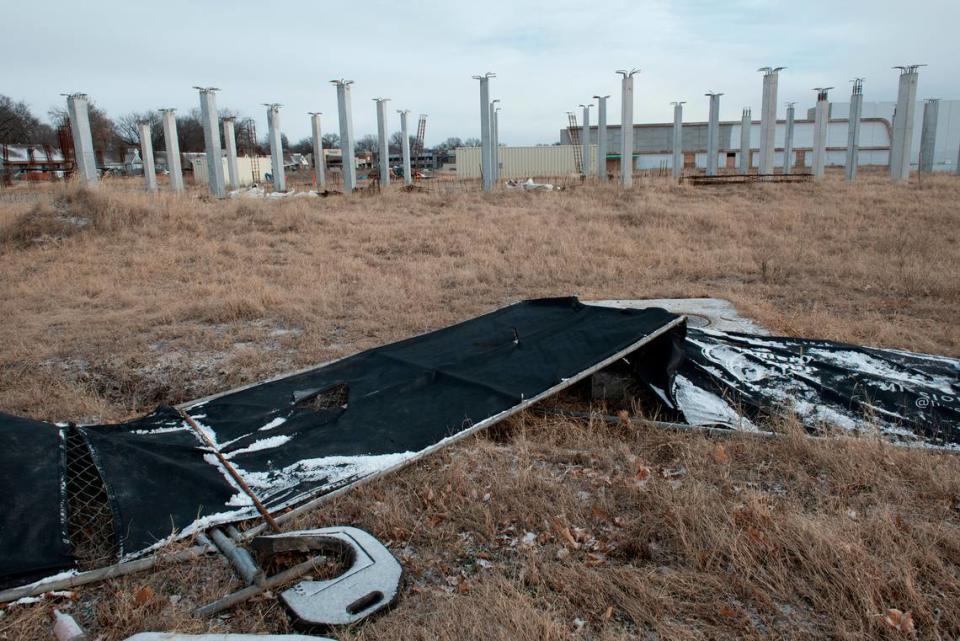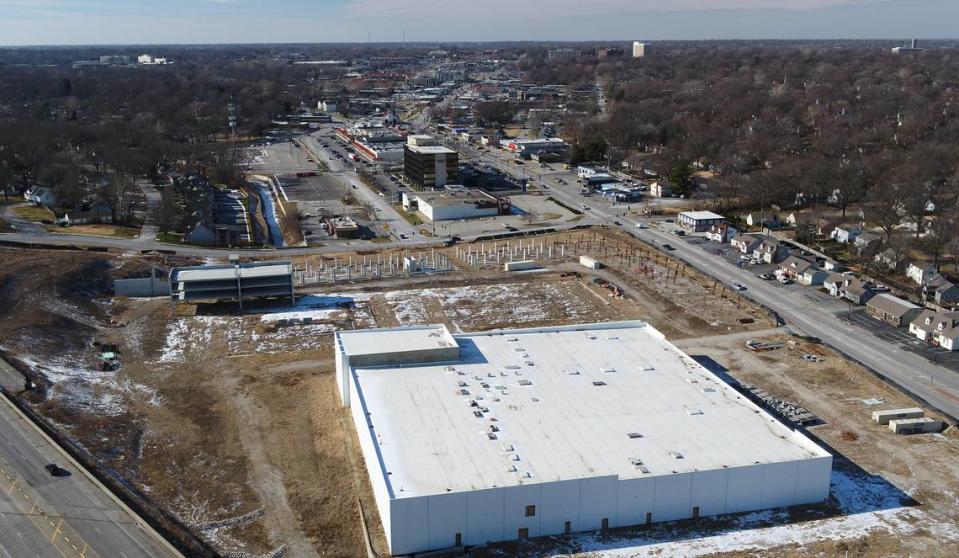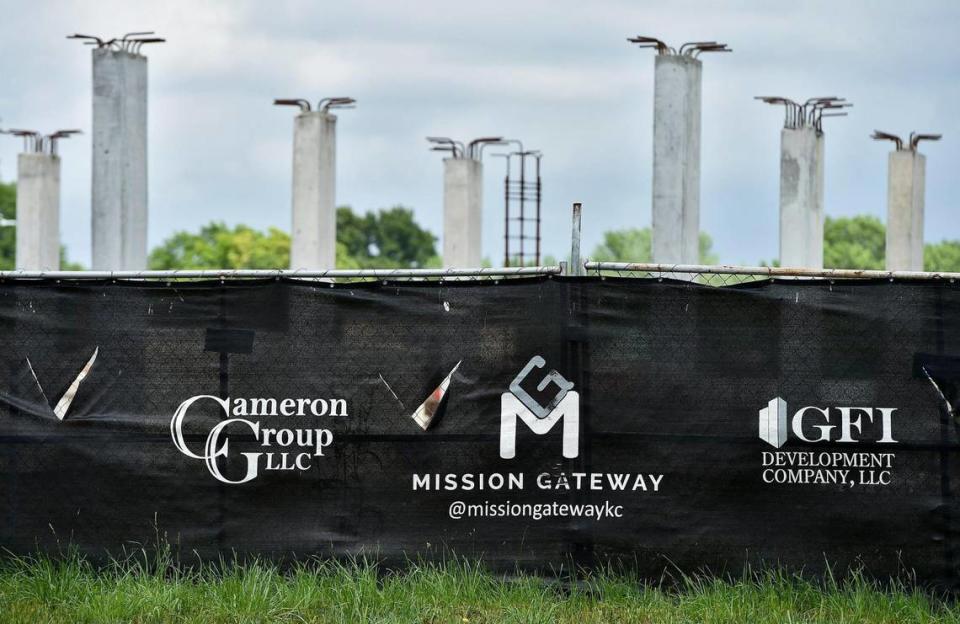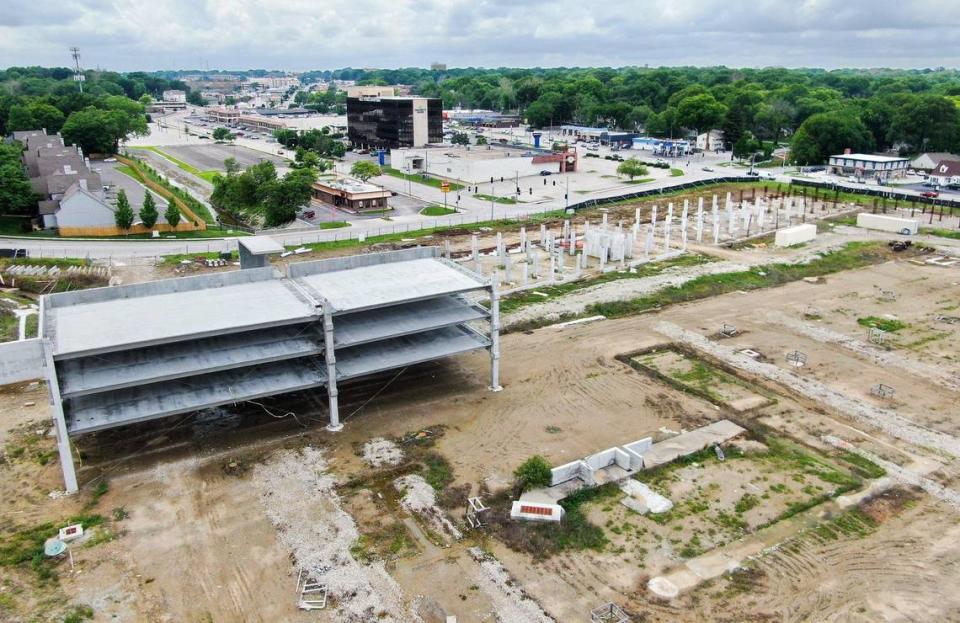‘Entirely unacceptable’: Mission Gateway developer refuses to meet with City Council
Despite facing the risk of foreclosure, owing thousands in back taxes and violating an agreement with the city, the developers of the long-plagued Mission Gateway have refused the city’s request to meet with officials this week and provide an explanation.
Mission Mayor Sollie Flora had a seething response in a late Monday afternoon news release, saying, “I cannot even begin to adequately convey my level of frustration with the developer’s failure to pay what our City is owed or its decision not to attend the meeting this week.”
Flora had called a special meeting for 6:30 p.m. Wednesday, inviting the Gateway team to come discuss the fragile state of the project, five months after the City Council approved a new development agreement with a bundle of tax incentives. But the team’s attorneys said the developers will not attend, the release said, and the mayor canceled the meeting.
“We expended tremendous effort last year working to negotiate an agreement which would give the developer the greatest chance of successfully completing the Gateway Project,” Flora said in the release. “To be advised of the foreclosure petition with no notice of the allegations therein and now to be told the developer will not even appear at a public meeting to account is beyond the pale.”
Attorneys for Aryeh Realty, the property owner, did not immediately return The Star’s request for comment Monday afternoon.
After nearly 20 years of false starts, the City Council in January gave the Mission Gateway developers a fifth shot. The council approved a new redevelopment agreement, offering tax incentives that the developers argued were crucial to finishing the project.
City officials said they felt the developers had provided enough assurances that they had the financing and plan to make good on their long-broken promise.
But last month, New York’s Metropolitan Commercial Bank filed a lawsuit in Johnson County Court seeking foreclosure of the property, saying developers missed several mortgage payments dating back to November. The bank says Aryeh owes more than $25 million in principal and interest, plus other late fees, court costs and appraisal costs. Those debts far exceed the likely value of the property if the bank forced a sale.
Then earlier this month, the developers failed to pay roughly $449,000 in property taxes, according to a Johnson County spokesman. That puts the team in violation of the redevelopment agreement, which requires timely tax payments.
The city last week sent Aryeh a notice of default, warning that they had 60 days to pay up. Otherwise, the city “can and will exercise” its rights under the agreement, officials said Monday. That includes terminating the deal.
City officials said they have yet to receive any indication of whether Aryeh plans to pay the overdue taxes.
“This past winter, the developer’s team stood in front of us and told us they were ready to go and could absolutely build this project. Yet five months later the developer has yet to show evidence that it has finalized its funding or that it is ready to proceed in a timely fashion,” Flora said in the release.
“The developer’s blatant and continued disregard for the negative impact its handling of the Gateway site has had on our City’s reputation for more than 15 years shows an utter lack of care and is entirely unacceptable.”
Flora said that, “At a minimum the developer owes the Governing Body and this community a clear explanation of its failure to pay what Mission is owed. The developer needs to make good on its promises and promptly right the Gateway Project or move on.”
She said that she is “unwilling to recommend or support any extensions or reconsiderations” of the development agreement. “We’ve been more than reasonable and understanding over the years and it is now up to Aryeh to keep its end of the bargain. We’re well past the time for excuses from the developer.”
Mission Gateway is being developed by the Cameron Group, a New York firm run by Tom Valenti, and GFI Capital Resources Group, a New York City real estate finance and management firm run by Allen Gross. Valenti purchased the Mission Gateway property, the highly visible former Mission Mall site at Shawnee Mission Parkway and Johnson Drive, in 2005.
Plans for the first phase of the $268 million project include a 90,000-square-foot Cinergy Entertainment complex, as well as 50,000 square feet of commercial or restaurant space, 370 apartment units and a parking garage. The second phase would include a 200-room hotel and 100,000 square feet of office space or a medical facility.
All but one City Council member voted in favor of a fifth agreement in January. It revised the terms of a 20-year tax increment financing deal and raised the special sales tax, collected as part of a 22-year community improvement district, from 1% to 2%.
The agreement required the first phase of work to be completed within 46 months after bonds are issued, or else the deal dies. It also required satisfaction of all liens at bond closing.
The city has yet to issue the $22.5 million in bonds, which would be repaid with property and sales tax generated on the site. And officials have emphasized that the developers have not yet received any incentives.
In a new protection for the city, the deal also requires the developer to place $3 million in escrow once the bonds are issued. Of that, $2 million would be used to ensure taxes are paid and $1 million would ensure deadlines are met. If not, the funds would be forfeited to the city.
City Administrator Laura Smith said the city continues to monitor the lawsuit as the bank looks to foreclose on the property, and officials will “determine appropriate actions which serve to protect the interests of the City in relationship to the Gateway Project.”
City officials continue to say that they are largely hamstrung because the site is privately owned.
“I know there are many residents and business who would like to see the City take over the property,” Flora said. “Unfortunately, there is not a viable path for the City to do so.”
